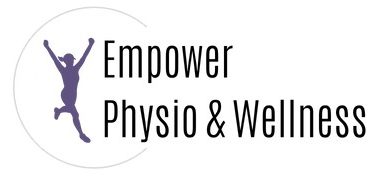As we gear up for the spring and summer, many of you are probably excited to capitalize on the warmer weather and increase your mileage. One of the best things you can do to feel great during your runs and promote effective recovery is to fuel your body with quality food. So, if you want to run better, recover faster, and feel AMAZING overall, I’m here to share my well-researched nutrition tips. As you read through these tips, please be aware that this guidance is mainly for endurance athletes or folks running longer distances (between 45 minutes-1 hour). If you’re running for 30 minutes or less, the timing and precision of what you consume is a little more flexible. Before we get into the details of what and when you should eat for optimal performance, it’s important to understand the three types of fuel your body expends.
TYPES OF FUEL
1. Blood glucose is sugar found in your bloodstream and it’s the first source of energy your body burns because it’s highly accessible.
2. Glycogen is glucose in storage form and your body uses it when you’ve already tapped in to all of your blood glucose.
3. Fat takes the longest to break down and is the last source of fuel your body uses. Now that you understand how the body accesses what it stores, we can get into the fun stuff: The food groups!
FOOD GROUPS
1. Carbs give you immediate energy and are used right away (so if you’re a high-endurance athlete, just say no to Keto). 60-65% of your diet should consist of high-quality carbs, but be sure they’re low in fiber so you don’t activate your digestive system. Additionally, know the difference between simple and complex carbs. Simple carbs (found in sports drinks, chews and gels) give you the immediate energy you need right before a workout. Complex carbs (think bread and pasta) take a little longer to break down so eat these a few hours before your run.
2. b provides endurance energy and (despite popular belief) is actually a good thing. If you’ve been buying low fat versions of food at the store, this is a public service announcement to stop doing that! Low fat items strip out fat and replace it with sugar. Instead, focus on quality and get a mix of saturated, polyunsaturated and monounsaturated fats.
Examples: Saturated fat
- Butter, coconut oil, red meat
Examples: Polyunsaturated fat:
- Seeds, fish
Examples: Monounsaturated fat:
- Avocado, nuts
3. Protein is not used to give you energy during long runs. Instead, it’s critical to recovery. When you lift or run, your muscles tear and reform as stronger muscles. The more intense your workout is, the more micro-tears in your muscles. Aim for 20 grams of protein between 20-40 minutes after a workout to rebuild your muscles and 60-65 grams of protein broken up throughout the day.
Examples: Fish, chicken, beans, eggs, protein powder, quinoa and barley
TIMING (AKA: WHAT TO EAT BEFORE, DURING AND AFTER A RUN)
Before
Before a run, fuel up on simple carbs low in fiber 30-60 minutes prior. You can also eat a big meal containing carbs the night before a morning run.
Some of my faves:
- Toast with peanut butter and jelly
- Banana and peanut butter sandwich
- Oatmeal and fruit
- Pretzels and hummus
- Whole grain waffles and syrup
- 1 cup of low fiber cereal with milk
- Granola bar
During
Unless you’re running for a duration longer than 60 minutes, you don’t need to fuel up during your run. If you’re an endurance athlete running a marathon, you’ll want to consume approximately 15-30g of carbs every hour. But you need to figure out what works for you PRIOR to race day so there are no surprises.
Some of my faves:
- Gels: honestly, I prefer chews over gels so I don’t have a go-to gel
- Chews: Clif Bloks, Shaklee energy chews
- Sports drinks: Shaklee hydrate, Nuun (skip the Gatorade and other drinks with high fructose corn syrup!)
After
Be sure you eat carbs and protein immediately after you finish your run, ideally within 30-40 minutes. If you wait, you significantly reduce the glycogen that gets put back into muscle storage. This can limit your endurance on your next run…no good. Glycogen stores in muscle are super important for distance running!
Some of my faves:
- Shaklee protein shake with fruit (banana with chocolate protein is my go-to because of the potassium in bananas)
- Chocolate milk
- Fruit and cottage cheese
- Trail mix
- Energy bar with a good mix of carbs and protein
If you’re looking for some great recipes for runners, be sure to check out Run Fast. Cook Fast. Eat Slow. I’ve been loving this cookbook! I hope these tips help you maintain high energy levels during and after your workouts. Got a favorite snack you eat before, during or after your run? Share in the comments!



